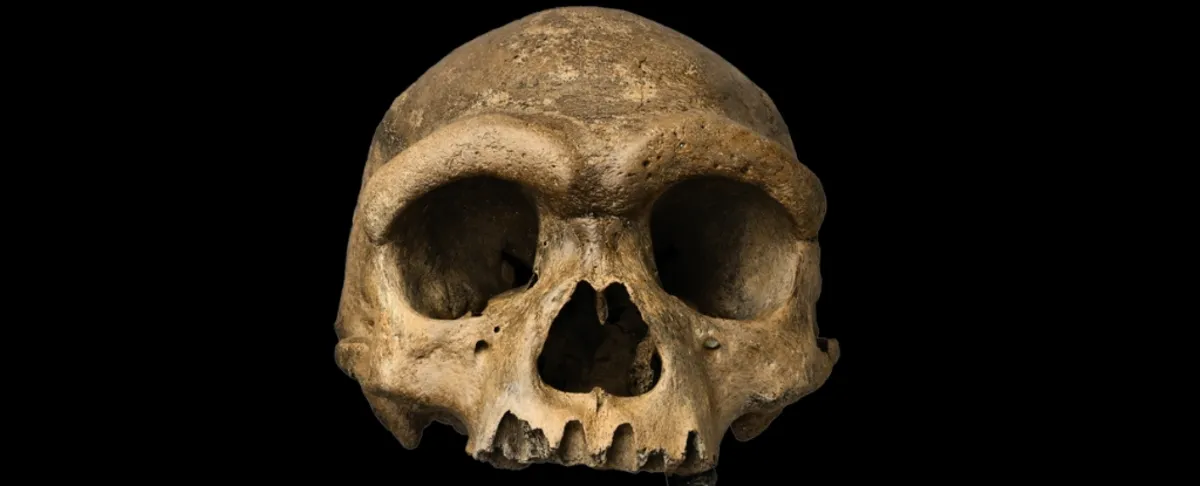
A 146,000-year-old skull, often referred to as the 'dragon man', has been reclassified by two new studies, which reveal it is not a unique ancient human species but rather belongs to a broader group of our extinct relatives known as the Denisovans. This significant finding marks the first discovery of a complete skull from this group, which has remained elusive for researchers.
The 'dragon man' skull was unearthed in the 1930s by a construction worker who was building a bridge over the Songhua River in Harbin, China, during the period of Japanese occupation. The region is known as Longjiang, translating to 'dragon river', which is the origin of the skull's nickname. After its discovery, the construction worker concealed the specimen at the bottom of a well, and it remained hidden until his family donated it to Hebei GEO University in 2018, initiating research on this remarkable find.
Initially, in 2021, the skull was classified as a new species of ancient human known as Homo longi. However, the latest research led by paleontologist Qiaomei Fu from the Chinese Academy of Sciences challenges this classification. Fu's studies utilized advanced techniques to examine the skull's proteins and mitochondrial DNA, revealing that the initial categorization was based primarily on comparative morphology—an approach that can sometimes lead to erroneous conclusions due to the variability in physical appearance among individuals of the same species.
Extracting molecular evidence from fossils is notoriously difficult, often leading to destructive results without guaranteed success. However, Fu and her team achieved remarkable results by retrieving proteins from the skull's petrous bone, one of the densest bones in the human body. They also successfully isolated mitochondrial DNA from dental plaque on the 'dragon man’s' teeth. This groundbreaking finding suggests that dental calculus could serve as a valuable source of DNA for studying Middle Pleistocene hominins, despite its previous underutilization in paleogenetics.
Through their analyses, Fu and her team discovered that the DNA from the Harbin specimen is more closely related to other Denisovans than previously thought. Although no complete Denisovan skulls had been identified until now, the mitochondrial DNA from the 'dragon man' links him to at least five other Denisovan individuals found in Siberia. Among the 95 protein fragments analyzed, four were definitively identified as Denisovan, with three matching directly.
While there are limitations associated with the sampling methods used, Fu and her team's findings suggest that the 'dragon man' is indeed part of the Denisovan lineage. This revelation leads to a bittersweet farewell to the idea of Homo longi, as researchers now recognize the skull as the first complete Denisovan skull ever found. This discovery is particularly exciting given that this critical piece of the paleoanthropological puzzle has been in human possession for nearly a century, illustrating that sometimes the most significant discoveries are indeed found in the most unexpected places.